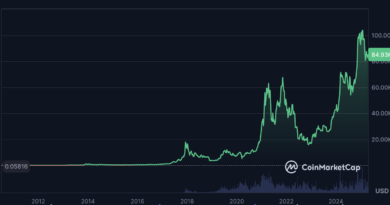SEC targets DCG and Genesis executives for fraud over 3AC fallout

Key Takeaways
- The SEC charged DCG and Genesis executives for misleading investors about financial stability after 3AC’s collapse.
- DCG and Genesis faced penalties and legal actions for defrauding investors through misrepresentation, with DCG agreeing to settle the SEC charges by paying a $38 million fine.
Share this article
The SEC has filed charges against Digital Currency Group (DCG), its subsidiary Genesis Global Capital, and former Genesis CEO Soichiro “Michael” Moro, alleging negligence and misleading statements that misrepresented Genesis’s financial health to investors.
Founded in 2015 by Barry Silbert and headquartered in Stamford, Connecticut, Digital Currency Group (DCG) is a prominent firm in the crypto space.
It owns Grayscale Investments, the largest digital asset manager globally, and previously owned CoinDesk, a leading crypto media outlet sold to Bullish, a crypto exchange led by former NYSE President Tom Farley, in November 2023.
Genesis, established in 2013 and credited with launching the first over-the-counter Bitcoin trading desk, faced severe financial turmoil after 3AC defaulted on loans totaling $2.4 billion.
This default caused a ripple effect, leaving Genesis exposed to a shortfall of at least $1 billion.
Despite the significant losses, DCG and Genesis made public statements claiming the company’s balance sheet was “strong” and that risks tied to 3AC had been “shed.” The SEC alleges these statements were materially false and misleading.
In an attempt to mask insolvency, DCG issued a $1.1 billion promissory note to Genesis on June 30, 2022.
This note inflated Genesis’s balance sheet and avoided negative equity at a crucial reporting date, but the terms were not disclosed to investors.
The SEC asserts this action misled stakeholders about Genesis’s financial condition.
Moro, who left Genesis in August 2022, also faces charges for his role in perpetuating these misrepresentations.
By November 2022, Genesis was overwhelmed with redemption requests and suspended withdrawals, leading to its Chapter 11 bankruptcy filing in January 2023.
The bankruptcy disrupted its partnership with Gemini Trust Company’s Earn program, which had allowed customers to earn high-interest returns on digital asset deposits.
Approximately 230,000 Gemini customers were affected, with Gemini and Genesis later agreeing on a settlement to return digital assets to users.
In February 2024, New York Attorney General Letitia James expanded a lawsuit against Genesis, DCG, and Gemini, alleging the companies defrauded investors of over $3 billion through the Earn program by misrepresenting its risks.
The SEC has imposed a $38 million penalty on DCG, while Moro has been fined $500,000.
Both have been issued cease-and-desist orders under Section 17(a)(3) of the Securities Act.
Barry Silbert, who has remained at DCG’s helm despite these challenges, recently announced new ventures to pivot the company’s focus.
In November 2024, he launched Yuma, a decentralized AI initiative leveraging the Bittensor network, signaling a potential comeback after the setbacks of the 2022 crypto downturn.
Share this article



